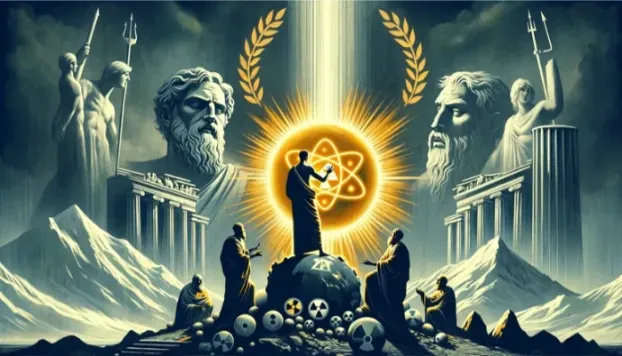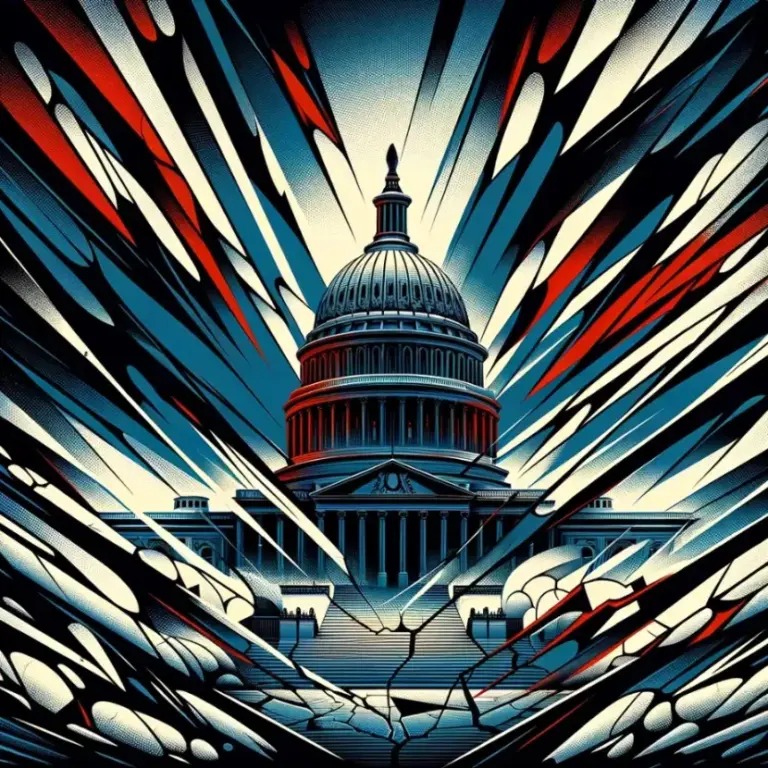The myths of AQ Khan and the ‘tech genius’

Significant technological advancements are often attributed to legendary geniuses who have been mythologised over time. Although these geniuses may have managed massive organisations, the popular image of the single inventor—often the ‘great’ men of history—tends to stick to them even if they hardly worked alone in their workshop. This was as true for Thomas Edison and Alexander Bell as for Steve Jobs.
Military technology has just as many mythologised manager-inventors, from Richard Gatling to Wernher von Braun. The United States atomic programme has its founding genius in Oppenheimer.
Pakistan has one, too: Abdul Qadeer (AQ) Khan, hailed as the ‘father of the Pakistani bomb’. Twenty years ago this month, in 2004, he confessed on television that he had been running a nuclear technology proliferation network supplying uranium enrichment technology to a number of pariah states. This earned him his next mythical status as the ‘pop icon of contemporary proliferation’.
Contested nuclear paternity
In May 1972, Pakistan embarked on a project to build nuclear weapons, reacting to its defeat in the 1971 war with India. The government’s initial plan was to produce plutonium. After India’s 1974 “peaceful nuclear explosion”, the Pakistanis doubled down and pursued uranium enrichment as well. Pakistan likely achieved a full nuclear weapons capacity by the early 1980s but didn’t demonstrate its capability until shortly after India’s 1998 tests.
In December 1975, AQ Khan, previously a metallurgist working for a European uranium enrichment consortium, transitioned from part-time nuclear spy based in Europe to full employment in Pakistan, heading up the enrichment path.
AQ Khan’s legacy is brilliantly contextualised in Mansoor Ahmed’s ‘Pakistan’s Pathway to the Bomb: Ambitions, Politics, and Rivalries’. As the nephew of Munir Khan, who ran Pakistan’s nuclear weapons programme between its inception in 1972 and his retirement in 1991, Ahmed had unusual access to the memories of his uncle and great insights into the country’s efforts.
Just how important AQ Khan’s contribution was to Pakistan acquiring nuclear capabilities has been a subject of controversy. In some ways, that debate is a proxy for how much the programme depended on technological imports from Europe and how much it can be considered an indigenous national achievement. According to AQ Khan, his illicit procurement of European technologies was central to making Pakistan’s bomb possible.
Ahmed offers more context to the AQ Khan-centric narrative of historical accounts of the South Asian proliferation project. His insights are especially relevant to Europe’s involuntary technology transfer to Pakistan, on which he offers riveting new details as he follows the archival trail (for the kinds of readers who are riveted by these things). He also makes clear that AQ Khan’s claims to be the sole creator of the Pakistani nuclear bomb were based more on the metallurgist’s self-promotional efforts than his accomplishments.
A self-made myth
In Ahmed’s account, mythmaking was present in the Pakistani nuclear bomb project from the beginning. It was used for bureaucratic warfare between the different factions of the Pakistani weapons programme. AQ Khan was the leading belligerent in that battle.
The bureaucratic infighting between AQ and Munir Khan makes the Oppenheimer-Teller feud appear tame. AQ and Munir accused each other of stealing documents from each other’s safes. Someone, presumably a Pakistani government entity allied with AQ Khan, forged a Western book about the bomb programme to make it appear more pro-AQ Khan and distributed it in the country. AQ Khan also launched a public PR campaign to promote his contribution to Pakistani nuclear technology.
AQ Khan also cared deeply about his image outside Pakistan, as a long, rambling, newly discovered 1980 letter from him to a British government official suggests. Writing just a few years after leaving the Urenco facility—an Anglo-German-Dutch nuclear fuel consortium—with sensitive knowledge about centrifuge technology, but two decades before his onward proliferation activities would come to light, Khan wrote:
“My own personal case has been a subject of […] slander and mischief. I am credited with the achievement of James Bond, of Klaus Fuchs & of Col. Abel.”
The letter demonstrates his keen awareness of his public image and the energy he put into shaping it. The creator of the ‘father of the Pakistani bomb’ myth was AQ Khan himself, probably serving both his ego and helping him fight his bureaucratic battles.
Export network
The story of AQ Khan as an agent of technological transfer became more of an international concern when he turned his import networks into a thriving proliferation enterprise, sharing nuclear proliferation mail-order starter kits with Iran, Libya, North Korea, and even possibly Pakistan’s arch-rival India.
His network was infiltrated and monitored by the CIA, which decided to shut it down by intercepting a shipment of centrifuge materials to Libya. While AQ Khan’s black-market network was shut down in 2004, the Khan myth has persisted in convoluted complexity.
Indeed, AQ Khan was viewed as a national hero and pardoned by President Pervez Musharaff the day after his televised confession. Yet, regarding his proliferation activities, he retracted his admission four years after his 2004 confession. AQ Khan alleged it was forced, and his later statements have often been conflicting and convoluted. While his nuclear sales clearly had financial motivations, he frequently espoused the injustices of the global nuclear order, perhaps with the self-justifying libertarianism of any gun dealer.
However, he continued playing a role in Pakistani public life until his death from Covid-19 in 2021. His name remains attached to public institutions—schools, university research centres, and hospitals—as well as the Khan Research Laboratories that he once directed.
Unlearning the myths
The mythology following AQ Khan has also attached itself to the effectiveness of his network. Sure, the ‘nuclear Walmart’ saw Khan and his associates provide a wide range of nuclear technologies to some of the West’s most ardent adversaries. Iran and especially North Korea have made huge strides in their nuclear programmes in recent years—Libya less so—but how much of this progress was down to Khan’s assistance?
Research on proliferation networks highlights the challenges in transferring intangibles–the expertise alongside the physical nuclear components. More recent research has shown that state capacity limited Libya’s ability to absorb Khan’s technology, with much remaining in packing crates. Khan’s merchandise was also not top of the range—with many of the centrifuges Khan supplied coming second-hand from Pakistan’s programme.
Khan’s assistance was also not cheap. For example, the cost to Libya of the uranium hexafluoride sold through the Khan network, and actually sourced in North Korea, was forty-times the market rate. Other research has questioned how challenging it is for states to develop centrifuge enrichment capabilities more broadly, suggesting Khan’s assistance was not crucial.
However, at the time, the geopolitical context shaped views of the effectiveness of Khan’s network. While a network so brazenly willing to sell such a range of nuclear technologies—a starter kit for the ‘absolute weapon’ as Bernard Brodie described it—to whoever was willing to pay was a serious threat, other events around the Khan network revelations heightened threat perceptions.
In the post-9/11 world, the US had invaded Iraq in search of Weapons of Mass Destruction, and evidence indicated that Al Qaeda had shown interest in these weapons. Then-US Director of Central Intelligence, George Tennet, described Khan as ‘at least as dangerous as Osama bin Laden’.
Ahmed’s book should replace or complement the classic books on Pakistan’s nuclear programme. It serves as a reminder of how much of the world’s nuclear story remains locked away in inaccessible memories and archives and how much of it may be obscured by intentional mythmaking. The centrality of Khan’s role in Pakistan’s programme—and also perhaps in the successes of the programmes of proliferators like Iran and North Korea—has been shaped by the Khan myth.





